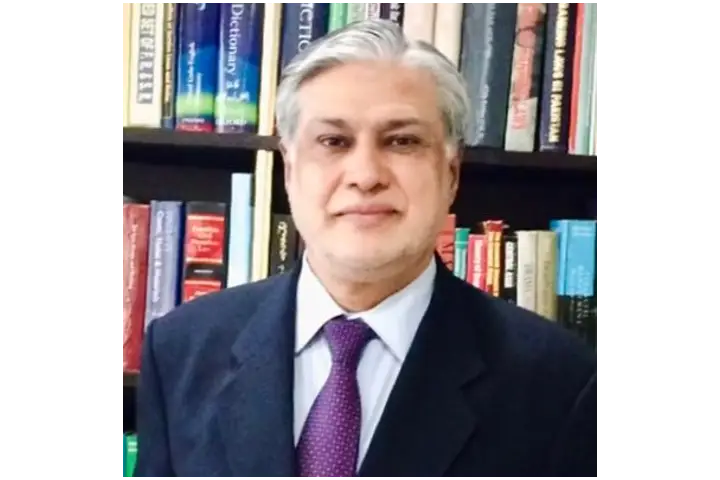

Pakistan's Finance Minister Ishaq Dar: Not in a happy spot
Pakistan’s Finance Minister Ishaq Dar will have to take much of the blame for the country’s deepening economic crisis. The fourth finance minister to assume office in three years, Dar took charge on September 28 last year when the foreign exchange reserves held by the State Bank of Pakistan were $7.8 billion. In October, the forex reserves were at $8.7 billion But in eight months, they have halved– the latest data released yesterday showed that the forex reserves are now at $4 billion.
Similarly, the inflation rate which was 26.6 per cent in October, has shot up to a record 38 per cent in May—the highest the country has recorded. In the previous month, the inflation rate stood at 36.4 per cent.
Amid the declining economic health, Dar will present the budget next week. Analysts said that the citizens have little hope and that they know that the worst is yet to come.
Dar’s policies have pushed Pakistan into an uncertain terrain. To begin with, the International Monetary Fund, which resumed its financial assistance package after intense negotiations carried out by Dar’s predecessor Miftah Ismail, halted the programme.
The resumption of the loan programme now depends on the budget announcements.
The country’s business captains fear that the budget would have the stamp of the multilateral agency. Besides Dar has not held any face to face consultation meetings with industry representatives and business heads, deviating from an age-old practice—something that has irked the business community even more.
“There is fear that the budget contours could further hurt the economy and push inflation,” a Pakistani citizen living outside the country told India Narrative on condition of anonymity. “Even if the IMF resumes its loan package, the citizens’ plight will not ease and that is not unknown to them,” he said.
Local newspaper Dawn in an article said that Dar’s “mismanagement of the economy over the last eight months proves that he is part of the problem.”
The country which has to make a repayment of about $3.7 billion by the end of this month has foreign exchange reserves barely enough to pay for imports for a few weeks.
“The situation has come to a point where any step taken to stabilise the economy actually exacerbates the crisis,” the newspaper said.
Also read: Iran Pakistan gas pipeline, Islamabad’s $18 billion headache as it faces default
Union Minister of State for External Affairs and Textiles, Pabitra Margherita, visited Eswatini, where he…
India and Fiji held their first Joint Working Group (JWG) meeting on defence cooperation in…
External Affairs Minister S Jaishankar on Thursday met a delegation of special envoys from the…
Amnesty International has issued a report demanding the immediate and unconditional release of detained leaders…
India on Thursday dispatched a consignment of 300,000 doses of Measles and Rubella vaccines, along…
At least four people were killed and dozens injured in violent clashes between law enforcement…